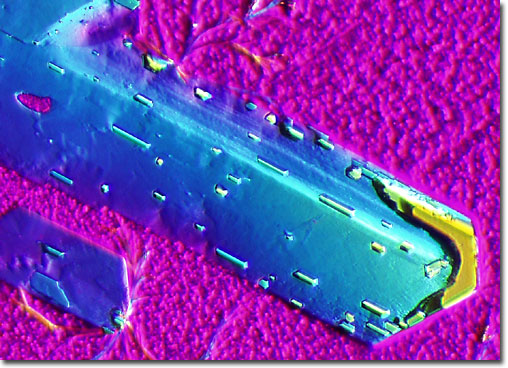Calcium Pectate

|
That snappy crunch in your lunchtime pickle may also be secretly improving your health. Research by the USDA has shown that calcium pectate, a pectin fiber that adds crispness to fruits and vegetables, has potent cholesterol-lowering properties. During digestion, calcium pectate binds to bile acids. This interaction induces the loss of small amounts of the acids, which are made from cholesterol. The body then removes cholesterol from the blood to make more bile for digestion. Calcium is an essential mineral nutrient for all living organisms including bacteria, animals, and plants. Combined with pectin, the "glue" that holds plant cells together, calcium forms a pectate salt that helps keep the cell walls sturdy and rigid. Calcium pectate is found in all of the fruits and vegetables we eat. From apples and carrots to cabbages and onions, this essential phytochemical is responsible for the characteristic crunch that helps make vegetables so delicious. |
© 1995-2025 by Michael W. Davidson and The Florida State University. All Rights Reserved. No images, graphics, software, scripts, or applets may be reproduced or used in any manner without permission from the copyright holders. Use of this website means you agree to all of the Legal Terms and Conditions set forth by the owners.
This website is maintained by our
|